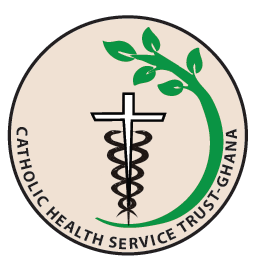POOLED PROCUREMENT PROGRAMME (PPP) HAS BEEN BENEFICIAL –DOROTHY QUAYE (MRS), ACTING MANAGER
 The Directorate of Health Editorial Team (DOHET) met with the Acting Manager of the Pooled Procurement Programme (PPP), Mrs. Dorothy Quaye, at her office to find out the performance of the PPP and her projections for the sustenance of the Programme.
The Directorate of Health Editorial Team (DOHET) met with the Acting Manager of the Pooled Procurement Programme (PPP), Mrs. Dorothy Quaye, at her office to find out the performance of the PPP and her projections for the sustenance of the Programme.
DOHET: Hello Mrs. Quaye
Mrs. Dorothy Quaye: Hello. It’s a pleasure to have you.
DOHET: Could you please tell us when the PPP started and how you joined?
Mrs. Dorothy Quaye: The programme started in 2011 and I can say I have been instrumental in its implementation. I am a pioneer staff, having worked as a Procurement Officer until June 2016, when I was given additional responsibility as the Acting Manager.
THE PROGRAMME
DOHET: Madam, in sum, what is the Pooled Procurement Programme Concept all about?
Mrs. Dorothy Quaye: The Programme (PPP) is to assist the institutions purchase high quality medicines and other non-drug medical supplies at affordable prices. In doing this, the focus is achieving cost-efficiency and ensuring availability of these essential health commodities at all times.
The programme seeks to assist NCHS institutions to better provide services to basically rural and semi-urban communities where they operate. It is partly also informed by the fact that the menace of counterfeit medicines is pervasive in the areas where the NCHS facilities operate.
ACHIEVEMENTS
DOHET: Would you say the Programme has achieved much?
Mrs. Dorothy Quaye: Certainly! I can say broadly, that there are two cardinal strides:
The PPP has ensured that only medicines of the highest quality are selected and supplied to the NCHS facilities. The reports we receive from Pharmacists and Managers attest to the quality of the medicines as compared with those on the market.
The Programme has also reduced the costs of medicines and non-drug consumables between 11% and 57%. Currently on average, about 30.25% reductions in the input budgets have been achieved year on year. It was about 25.64% in the first two years of the Programme’s life.
CHALLENGES
DOHET: Obviously there have been challenges; could you please share some with us?
Mrs. Dorothy Quaye: Very well, the delayed reimbursement by NHIA to NCHS facilities is negatively affecting the facilities’ ability to pay suppliers on time.
Also, the lack of data submission from Suppliers and NHCS facilities make it very difficult for the Programme Secretariat to compile accurate data on sales and payments as part of the contract management process and for reporting.
There is need for acquisition of software to manage large data on supplies and payments by both Suppliers and NCHS facilities.
PROSPECTS
DOHET: Finally Madam, share with us the prospect of the PPP
Mrs. Dorothy Quaye: All NCHS health facilities have come to appreciate the importance of quality medicines and medical consumables in ensuring quality healthcare delivery and the role that the PPP plays in this direction. The awareness created about counterfeit medicines at Hospital and Clinic Heads Meetings have enabled them to scrutinize other products used at their facilities which are not on the Pooled Procurement Programme list of products. The presence and awareness of the minilab for the testing of medicines that are delivered to our facilities has made the suppliers aware that they cannot supply anything but only quality medicines to our facilities.
The future is bright for the sustainability of the programme, to ensure only quality medicines are available for medication.
DOHET: Thank you for your time.
Mrs. Dorothy Quaye: You are welcome anytime. In God is our help and health.
